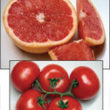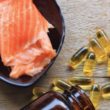Eat well…be well: nutrition and prostate cancer
Diet and lifestyle can affect prostate cancer rates; good nutrition can help lower the risk and progression of prostate cancer. One study showed that a healthy diet and exercise reduced a hormone called IGF-I, which is linked to higher cancer risk. To maintain a healthy diet, it’s important to eat mostly plant-based foods, lots of fruits and vegetables, and high-fiber foods, limiting fat and simple sugars. Fruits and vegetables are especially beneficial as they have cancer- fighting properties. Cruciferous vegetables like broccoli, cabbage, and kale may specifically reduce prostate cancer risk.
A low-fat diet is important, as high-fat diets can increase hormones related to prostate cancer growth. Omega-3 fatty acids found in certain foods like fish and flaxseeds may help reduce the risk of prostate cancer. However, very high levels of omega-3 have been associated with an increased risk for prostate cancer and the aggressive forms of the disease – see www.drcatalona.com and search on “fish oil” for further information) Nuts, although high in fat have beneficial fatty acids but should be eaten in moderation. Simple sugars should also be limited as they may promote cancer cell growth. High caloric intake may increase prostate cancer risk, so moderation is essential.
A high-fiber diet can help bind toxins and reduce hormones linked to prostate cancer. The authors recommend consuming 25 to 35 grams of fiber daily, including whole grains.
Drinking sufficient water and moderating caffeine intake is crucial when following a high-fiber diet.
Overall, a healthy, mostly plant- based diet including fiber and limiting fat and sugar, along with regular exercise, can help reduce the risk and progression of prostate cancer.
Information is summarized from a UCSF patient education booklet, Nutrition and Prostate Cancer.
















